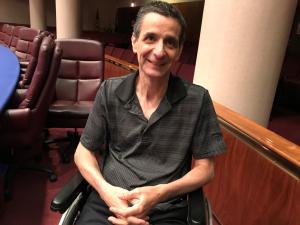Social media surveillance by police departments like the Los Angeles Police Department (LAPD) is growing steadily. In a poll conducted by the International Association of Police in 2017 70% of responding police departments said they were actively using social media to conduct surveillance and for operational awareness.
In January of 2020 the Brennan Center for Justice filed open records requests with four police agencies seeking records related to how the agencies use social media. In today’s show we sit down with Rachel Levinson-Waldman to discuss the Brennan Center’s findings specifically as they pertain to the LAPD. The LAPD uses advanced software platforms to connect the general surveillance data they collect including license plate and street stop data with the social media data the private companies collect from the various platforms.
The LAPD uses platforms like Geofeedia, Media Sonor, and Palantir to greatly expand the power of their surveillance capabilities. These platforms can build dossiers on individuals and go as far as identifying communities they live in frequent socially. This is where police department like the LAPD take seemingly small independent bit of data their surveillance programs scoop up, connect them to outside sources, and create a more 360 degree view of an individual’s life. According to Levinson-Waldman the LAPD can connect their data they collect to other government sources like the DMV records all in an effort to boost their insight in to the lives of average people across Los Angeles.
Of course the LAPD doesn’t currently have in place sophisticated guidelines that limit the discretion of officers and the potential abuse of these sophisticated surveillance platforms. Levinson-Waldman was able through their efforts to obtain a social media guide from the LAPD and the guide in fact encouraged average officers to use social media for situational awareness and surveillance and details how there is no restrictions and oversight.
Podcast: Play in new window | Download (0.0KB) | Embed



